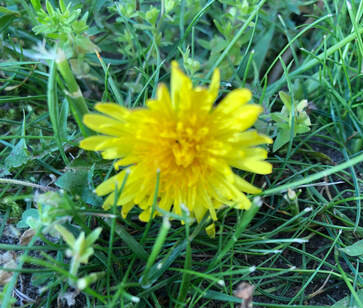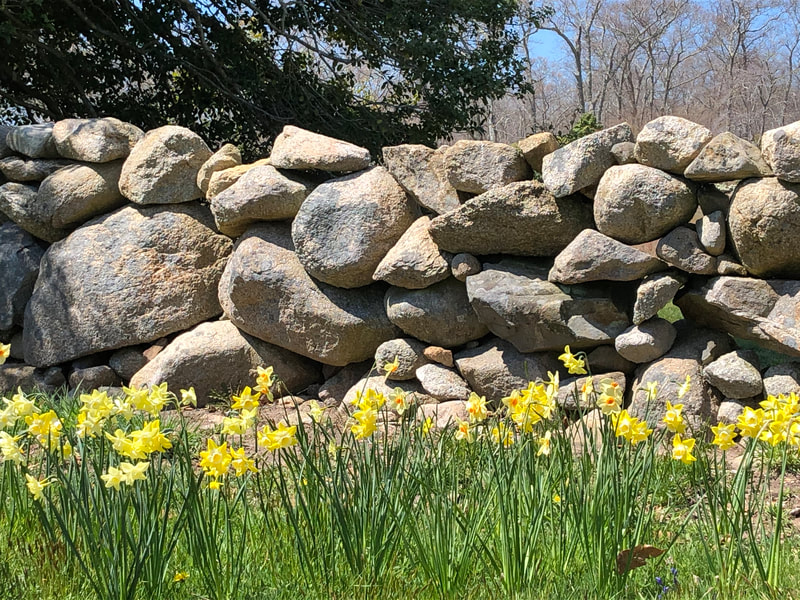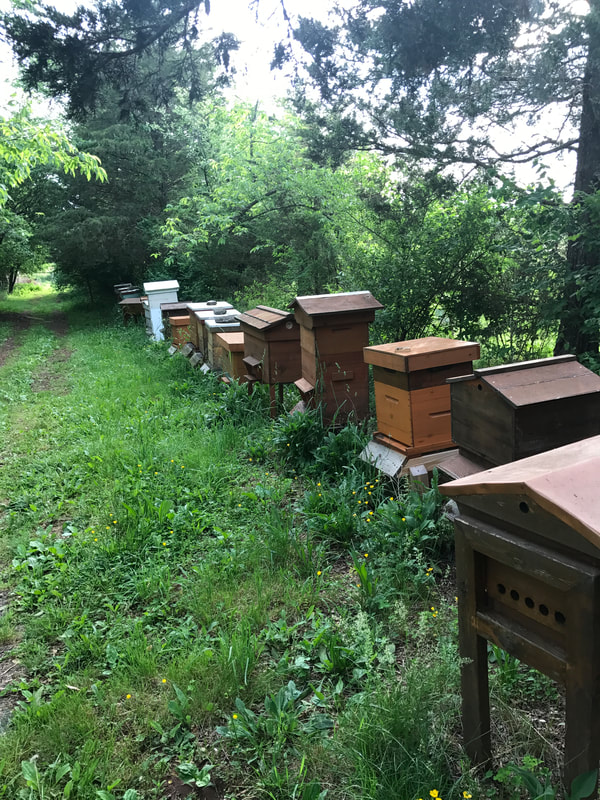Be a part of 'No Mow May', 2024!

Do consider joining the “No Mow May” movement!
New England and the Vineyard's often unpredictable weather allows lawn mowing in Massachusetts to typically begin around May.
By delaying the start of mowing by just 31 days, the grass will grow taller, the clover will bloom, and other plants that share our lawns to feed the pollinators will help in feeding the wildlife and us!
To promote this important environmental opportunity, Plantlife (a UK-based non-profit focused on saving threatened wild flowers, plants, and fungi) created a conservation campaign called “No Mow May,” which asks lawn-owners to forego mowing during the month of May. Starting last year, the concept was picked up by the international Xerces Society for Invertebrate Conservation as part of an initiative called Bee City USA, which is committed to the conservation of endangered native bees right here at home.
Is delaying mowing a good thing?
YES, if your lawn is planted with spring-blooming bulbs that flower, photosynthesize and store energy until their leaves die naturally, then gracefully fade back into the soil to await another year.
YES, if you’re a bird struggling to feed the voracious appetites of nestlings. Just a few weeks of lawn left uncut during the crucial May period will provide shelter for additional insects, improving baby birds’ chances of survival.
YES, if you’re a pollinator, as it increases habitat and resources needed to grow populations. (Consider the plight of the rusty patched bumblebee, Bombus affinis, the first bee in the continental US to be protected under the Endangered Species Act!)
NO, if you're a lawn purist, happy only when short, deep green grass has no other plants sharing the same space.
Postpone mowing? Easier said than done, you say? Perhaps you share gardening chores with other household members who have different sensibilities. Or a community that has rigid standards. Is there a way to satisfy everyone? First off, No Mow May does NOT require you to forego mowing your entire lawn until June. Just start small! Maybe in the back of your home or an unused area behind the garden shed or garage, you can leave unmowed? Or just mow the edges of your lawn and leave a few meandering paths down the middle... In Europe, estates often have “rough” areas heavily planted with bulbs and specimen trees where mowing is delayed until spring ephemerals have naturally begun to go dormant. These areas are then intermittently cut tall throughout the season. In Massachusetts many landscapes are bordered by woods or wetlands, and so having a transitional area between formal lawns and wild woods could create a glade or small vista that adds both curb appeal and pretty views for you. Maybe this is a great opportunity to rethink a bit of your current landscape design?
Do consider testing No Mow May this year on at least a portion of your property or a property that you help to manage. Who knows? You may be led down a path of discovery to shrink your lawn, mow less, or raise your mower blade…for the benefit of the environment, your pocketbook, your valuable time, and the aesthetics of your property.
New England and the Vineyard's often unpredictable weather allows lawn mowing in Massachusetts to typically begin around May.
By delaying the start of mowing by just 31 days, the grass will grow taller, the clover will bloom, and other plants that share our lawns to feed the pollinators will help in feeding the wildlife and us!
To promote this important environmental opportunity, Plantlife (a UK-based non-profit focused on saving threatened wild flowers, plants, and fungi) created a conservation campaign called “No Mow May,” which asks lawn-owners to forego mowing during the month of May. Starting last year, the concept was picked up by the international Xerces Society for Invertebrate Conservation as part of an initiative called Bee City USA, which is committed to the conservation of endangered native bees right here at home.
Is delaying mowing a good thing?
YES, if your lawn is planted with spring-blooming bulbs that flower, photosynthesize and store energy until their leaves die naturally, then gracefully fade back into the soil to await another year.
YES, if you’re a bird struggling to feed the voracious appetites of nestlings. Just a few weeks of lawn left uncut during the crucial May period will provide shelter for additional insects, improving baby birds’ chances of survival.
YES, if you’re a pollinator, as it increases habitat and resources needed to grow populations. (Consider the plight of the rusty patched bumblebee, Bombus affinis, the first bee in the continental US to be protected under the Endangered Species Act!)
NO, if you're a lawn purist, happy only when short, deep green grass has no other plants sharing the same space.
Postpone mowing? Easier said than done, you say? Perhaps you share gardening chores with other household members who have different sensibilities. Or a community that has rigid standards. Is there a way to satisfy everyone? First off, No Mow May does NOT require you to forego mowing your entire lawn until June. Just start small! Maybe in the back of your home or an unused area behind the garden shed or garage, you can leave unmowed? Or just mow the edges of your lawn and leave a few meandering paths down the middle... In Europe, estates often have “rough” areas heavily planted with bulbs and specimen trees where mowing is delayed until spring ephemerals have naturally begun to go dormant. These areas are then intermittently cut tall throughout the season. In Massachusetts many landscapes are bordered by woods or wetlands, and so having a transitional area between formal lawns and wild woods could create a glade or small vista that adds both curb appeal and pretty views for you. Maybe this is a great opportunity to rethink a bit of your current landscape design?
Do consider testing No Mow May this year on at least a portion of your property or a property that you help to manage. Who knows? You may be led down a path of discovery to shrink your lawn, mow less, or raise your mower blade…for the benefit of the environment, your pocketbook, your valuable time, and the aesthetics of your property.



